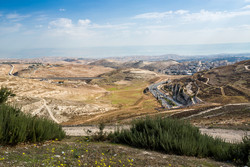European expertise boosts biodiversity conservation in Palestine
In the politically troubled regions of the Near East, preserving biodiversity is often seen as one of the least important considerations. The EU-funded DEBPAL2 (Reinforcing capacity building for defending biodiversity in the Palestinian Territories) project sought to address this issue in Palestine. The project looked at reinforcing the capabilities of Al Quds University in the West Bank by reorganising its biology laboratories, mobilising its human resources and upgrading staff knowledge. With the support of its Belgian and Italian partners, the project team worked to enhance the participation of Palestine in the Horizon 2020 programme, increasing biodiversity research at Al Quds University and promoting European training on the topic. Subjects addressed include recovery and conservation plans, agrobiodiversity and future sustainable development policy achieved through staff exchanges, seminars and dissemination of relevant information. Most notably, the project worked on developing a Palestinian Biodiversity Recovery Plan, linking it with wider regional plans. Specific research was aimed at ensuring long-term survival of species and ecological integrity of ecosystems, long-term provision of ecosystem services, and evaluating species' adaptability and reinforcing their occurrence and recovery. The results and studies emerging from the research were used to develop good practices, guidelines and tools for the Palestinian authorities. The project also delivered a report on socio economic aspects that considered the welfare of work animals, pets and those slaughtered for food and highlighted human rights in the West Bank are almost non-existent. From a geopolitical perspective, DEBPAL2 also looked at how confiscation of land, the separation barrier, new road infrastructure and building new Jewish settlements affect biodiversity and ecology of the area. The team worked to bridge the gap between human rights defenders and the work of ecologists and environmentalists, noting that the two were inextricably linked. It raised awareness of concerned stakeholders regarding these crucial issues. The project tied its strategy with business models to help small and medium-sized enterprises seek economic benefit from advancing biodiversity and related issues. Although it will take much hard work and dedication by all stakeholders to improve ecological issues and safeguard biodiversity in Palestine, this project has laid an important cornerstone to support these goals.







